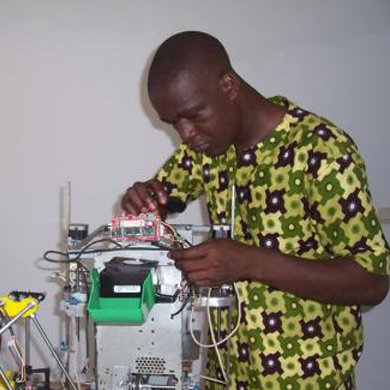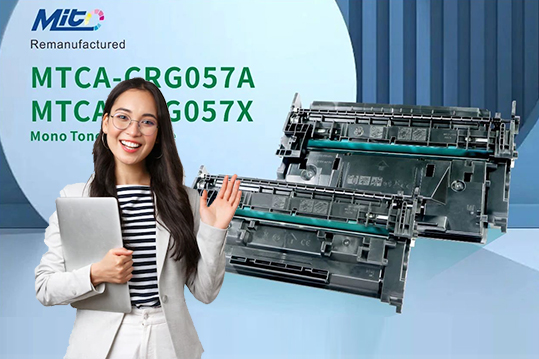Togolese Man Uses Electronic Waste to Create 3D Printer
 Discarded mainframes, second-hand scanners, and a solid amount of tinkering: These were the ingredients that allowed a Togolese geographer to create the first entirely recycled 3D printer. Recycling these materials, he explains, also helps fight against the worsening electronic waste problem in Togo.
Discarded mainframes, second-hand scanners, and a solid amount of tinkering: These were the ingredients that allowed a Togolese geographer to create the first entirely recycled 3D printer. Recycling these materials, he explains, also helps fight against the worsening electronic waste problem in Togo.
Sales of 3D printers, which can print all kinds of objects using modelling or laser techniques, have boomed in the past year. The market is currently worth 1.5 billion euros and could increase to 6 billion euros by 2020. During this holiday season, several companies are selling 3D printers for individual use at very low prices.
Afaté Gnikou, a geographer by training, first saw a “Mendel”—an artisanal self-replicating 3D printer —in August 2012 during a workshop in Lomé.
According to a recent report from Solving the E-waste Problem, 50 million tonnes of discarded electronic and electrical equipment were generated globally in 2012, which averages out to about 7 kg per person. This influx of waste could reach 65 million tonnes in 2017. According to experts, somewhere between 50 to 85 percent of this waste ends up in Nigeria, Ghana, and Togo. Furthermore, by 2017, Africa is expected to generate more e-waste than the European Union.
Gnikou sought to respond to this problem in his own way:
“I went hunting for old mainframes, discarded scanners, connection bars, and components in the landfills of Lomé. I basically took anything that could potentially be used to create the chassis and the electronic part of the printer. It took me six months to develop the first prototype. I received support from an incubator, WoeLab that is located in Djidjolé, a lower-income neighbourhood in Lomé. They got unemployed youths to come see me work and to get involved in the project.
Many people told us that what we’re doing is very complicated, that it’s reserved for ‘the elite’. I have no background in computer science; my studies were in literature. Building a model like this is a question of will and creativity. The first object that we printed was one that I had designed from A to Z on 3D modelling software: A pen holder. On it, we had written “right to dream”, our motto from the beginning.”
WoeLab, which supported Afaté in developing his recycled 3D printer, believes that the project could create up to 15,000 jobs.
(Source: The Observers)





Leave a Comment
Want to join the discussion?Feel free to contribute!